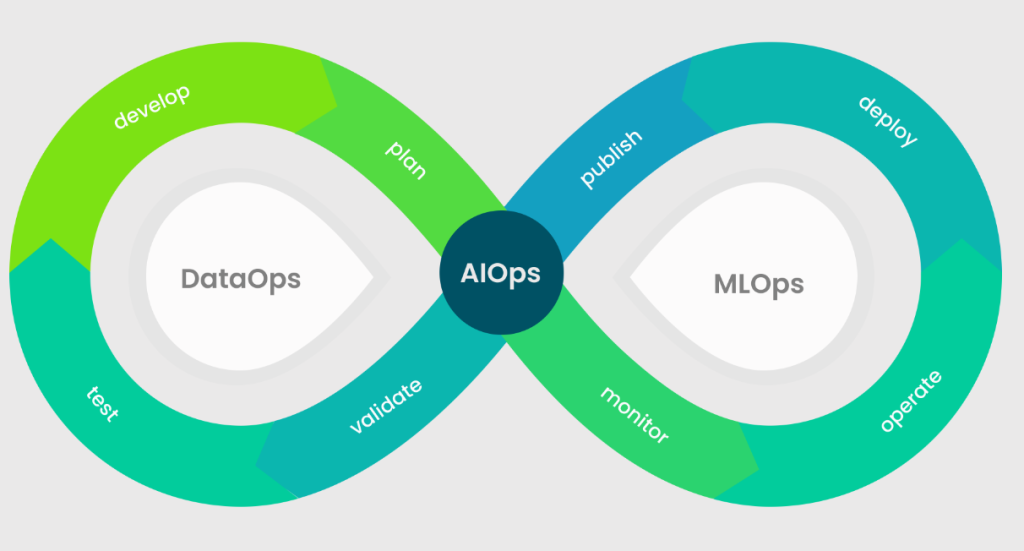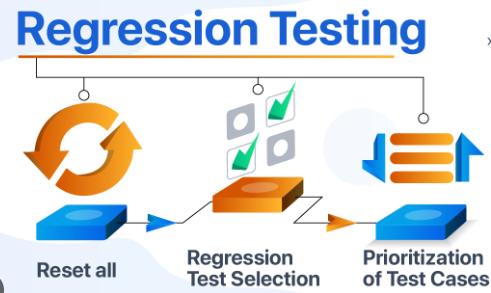
AIOps (Artificial Intelligence for IT Operations) primarily focuses on enhancing IT operations by leveraging AI and automation to optimize various aspects of technology management. However, while AIOps itself is not directly tied to digital marketing, AI and automation technologies can have a significant impact on various facets of digital marketing. Let’s explore how AIOps indirectly affects digital marketing:
Customer Insights and Personalization:
AIOps can help gather and analyze vast amounts of data from different sources, including customer interactions, website behavior, and social media activity. By identifying patterns and trends within this data, businesses can gain deeper insights into customer preferences and behaviors. These insights can then inform digital marketing strategies, enabling more personalized and targeted campaigns. AIOps-powered analytics can help marketers understand user journeys, preferences, and engagement patterns, facilitating the delivery of relevant content and experiences.
Predictive Analytics for Campaign Performance:
Predictive analytics, a key component of AIOps, can be applied to digital marketing efforts. By analyzing historical data and identifying correlations between different variables, AI can predict the likely outcomes of marketing campaigns. Marketers can use this information to adjust strategies and optimize campaigns for better results. For instance, predictive analytics can help identify the best times to send emails, the most effective channels to reach specific audiences, and even forecast customer responses to promotional offers.
Content Optimization:
AIOps tools can assist in content optimization by analyzing user engagement data, sentiment analysis, and other metrics related to content performance. AI can suggest improvements for headlines, keywords, and content structure based on what has resonated with audiences in the past. This can lead to more effective content creation and distribution strategies, ultimately driving better engagement and conversion rates.
Chatbots and Customer Support:
AIOps-driven chatbots and virtual assistants can enhance customer support in the digital marketing context. These chatbots can provide immediate responses to customer inquiries, offer personalized recommendations, and guide users through purchasing decisions. By integrating AI-powered chatbots into websites and communication channels, businesses can deliver seamless customer experiences and capture valuable insights about customer needs and preferences.
Ad Campaign Optimization:
AI-driven algorithms can optimize digital advertising campaigns by continuously analyzing data in real time. AIOps tools can adjust bidding strategies, ad placements, and targeting parameters based on performance data. This dynamic optimization can result in higher click-through rates, improved ad relevancy, and better return on investment for advertising spend.
Data-driven Decision-making:
AIOps emphasizes data-driven decision-making by providing insights based on comprehensive data analysis. In the context of digital marketing, these insights can guide marketing strategies, help prioritize campaigns, and allocate resources effectively. Businesses can make informed decisions about which channels, messages, and tactics are yielding the best results.
Introduction to AIOps
AIOps: Transforming IT Operations with Artificial Intelligence
AIOps, short for Artificial Intelligence for IT Operations, represents a revolutionary paradigm shift in managing modern IT environments. It leverages the power of artificial intelligence, machine learning, and automation to streamline and enhance IT operations, ensuring a proactive, efficient, and data-driven approach. In a technology landscape characterized by complexity, scale, and rapid change, AIOps emerges as a vital solution to address the challenges of traditional IT management.
At its core, AIOps integrates data analysis, machine learning algorithms, and automation to provide real-time insights, predictive capabilities, and intelligent decision-making. This approach allows organizations to not only react to incidents but also predict and prevent them before they impact end-users. By processing data from diverse sources like logs, metrics, events, and user interactions, AIOps uncovers hidden patterns, identifies anomalies, and correlates information that human operators might miss.
Use Cases of AIOps
Unlocking the Power of AIOps: Real-World Applications
AIOps has a broad spectrum of use cases across various domains of IT operations, bringing transformative benefits to organizations. Some key use cases include:
- Incident Management and Resolution:
- AIOps can predict incidents based on historical data and current trends, allowing IT teams to proactively address issues before they escalate.
- It assists in rapid root cause analysis, reducing Mean Time to Resolution (MTTR) and minimizing service disruptions.
- Anomaly Detection and Alerts:
- AIOps identifies abnormal patterns in data, helping teams swiftly detect potential security breaches, performance deviations, or system glitches.
- Capacity Planning and Resource Optimization:
- By analyzing usage patterns and historical data, AIOps assists in optimal resource allocation, ensuring efficient usage of infrastructure.
- Change Management:
- AIOps helps assess the impact of changes in the IT environment, reducing the risk of unintended consequences during software updates or configuration changes.
- Performance Monitoring and Optimization:
- AIOps provides continuous monitoring of application and system performance, offering insights to optimize performance and enhance user experiences.
- Predictive Maintenance:
- In IoT and connected device environments, AIOps can predict when devices might fail or need maintenance, preventing downtime and costly repairs.
- Security and Compliance:
- AIOps aids in identifying unusual activities and potential security threats, contributing to early threat detection and compliance enforcement.
Best Way to Implement AIOps in Organizations
Navigating the AIOps Implementation Journey: A Strategic Approach
Implementing AIOps effectively requires careful planning, collaboration, and a strategic approach. Here’s a step-by-step guide to the best way to implement AIOps in organizations:
- Assessment and Readiness:
- Evaluate your organization’s IT environment, challenges, and goals.
- Identify pain points, areas for improvement, and the potential impact of AIOps adoption.
- Define Objectives:
- Clearly define the goals of implementing AIOps – whether it’s incident prediction, performance optimization, or resource utilization improvement.
- Data Collection and Integration:
- Collect data from various sources, ensuring data quality, consistency, and security.
- Integrate data into a centralized repository or platform capable of handling large volumes of data.
- AI Model Development:
- Collaborate with data scientists to develop AI models tailored to your organization’s needs.
- Train models using historical data to enable predictive and prescriptive capabilities.
- Platform Selection:
- Choose an AIOps platform or tools that align with your organization’s goals and technical requirements.
- Consider factors like data compatibility, scalability, and ease of integration with existing systems.
- Proof of Concept (PoC):
- Conduct a PoC to validate the effectiveness of AIOps in addressing specific use cases.
- Assess the PoC’s results, feasibility, and ROI to gain buy-in from stakeholders.
- Integration and Deployment:
- Integrate the selected AIOps tools or platform into your IT environment.
- Configure data sources, APIs, and connections to ensure smooth data flow and analysis.
- Training and Education:
- Train IT teams on AIOps concepts, tools, and best practices.
- Foster a culture of collaboration between AI-driven insights and human expertise.
- Continuous Monitoring and Improvement:
- Continuously monitor the performance of your AIOps implementation.
- Collect feedback from IT teams and stakeholders to refine processes, improve AI models, and optimize outcomes.
- Scaling and Expansion:
- As your organization gains confidence in AIOps, scale its implementation to cover more use cases and expand its impact.
Implementing AIOps in organizations is a journey that requires alignment with business goals, collaboration between IT and data science teams, and a commitment to continuous improvement. By embracing AIOps, organizations can navigate the complexities of modern IT operations and unlock the potential of AI-driven insights and automation.
What is the Best AiOps Tools
There are many great AIOps tools available, but some of the best include:
- Splunk: Splunk is a popular data analytics platform that can be used for AIOps. It can collect data from a variety of sources and use machine learning to identify patterns and anomalies.
- New Relic: New Relic is another popular data analytics platform that can be used for AIOps. It can collect data from a variety of sources and use machine learning to identify patterns and anomalies.
- Datadog: Datadog is a monitoring and observability platform that can be used for AIOps. It can collect data from a variety of sources and use machine learning to identify patterns and anomalies.
- IBM Watson AIOps: IBM Watson AIOps is an AIOps platform that uses machine learning to automate IT operations tasks. It can identify and resolve problems, optimize IT resources, and predict future events.
- Google Cloud AIOps: Google Cloud AIOps is an AIOps platform that uses machine learning to automate IT operations tasks. It can identify and resolve problems, optimize IT resources, and predict future events.
The best AIOps tool for you will depend on your specific needs and requirements. Here are some factors to consider when choosing an AIOps tool:
- The size and complexity of your IT environment
- The types of data you need to collect and analyze
- The features and capabilities you need
- Your budget
Which is the Best AiOps Courses
DevOpsSchool offers a number of AIOps courses, including:
- AIOps Fundamentals: This course provides an introduction to AIOps and the concepts, technologies, and use cases.
- AIOps for IT Operations: This course is designed for IT professionals who want to learn how to use AIOps to improve the performance of their IT operations.
- The Complete AIOps Course: This course is a comprehensive guide to AIOps. It covers the concepts, technologies, use cases, and implementation of AIOps.
The best AIOps course from DevOpsSchool for you will depend on your experience level and learning goals. If you are new to AIOps, the AIOps Fundamentals course is a good place to start. If you are an experienced IT professional who wants to learn how to use AIOps, the AIOps for IT Operations course is a good option. And if you want a comprehensive guide to AIOps, the The Complete AIOps Course is the best choice.
Top AiOps Certification in 2024. AIOps Certified Professional (AIOCP)
The AIOps Certified Professional (AIOCP) is a certification offered by the AIOps Institute. It is designed for IT professionals who want to demonstrate their expertise in AIOps. The AIOPC certification covers the following topics:
- The principles of AIOps
- The technologies used in AIOps
- The best practices for implementing AIOps
- The benefits of AIOps
To become an AIOps Certified Professional, you must pass a certification exam. The exam consists of multiple-choice questions and practical exercises.
Who is the best AiOps Trainer.
Rajesh Kumar is a certified AIOps trainer and consultant. He has over 10 years of experience in IT operations and has worked with a variety of organizations to implement AIOps solutions. Rajesh is a passionate advocate for AIOps and believes that it can help organizations to improve their IT operations significantly.
Rajesh offers a variety of AIOps training courses, including:
- AIOps Fundamentals: This course provides an introduction to AIOps and the concepts, technologies, and use cases.
- AIOps for IT Operations: This course is designed for IT professionals who want to learn how to use AIOps to improve the performance of their IT operations.
- The Complete AIOps Course: This course is a comprehensive guide to AIOps. It covers the concepts, technologies, use cases, and implementation of AIOps.
Rajesh is also a certified AIOps consultant and can help organizations to implement AIOps solutions. He can help you to:
- Gather your IT data
- Prepare your data
- Deploy an AIOps platform
- Configure an AIOps platform
- Use an AIOps platform


